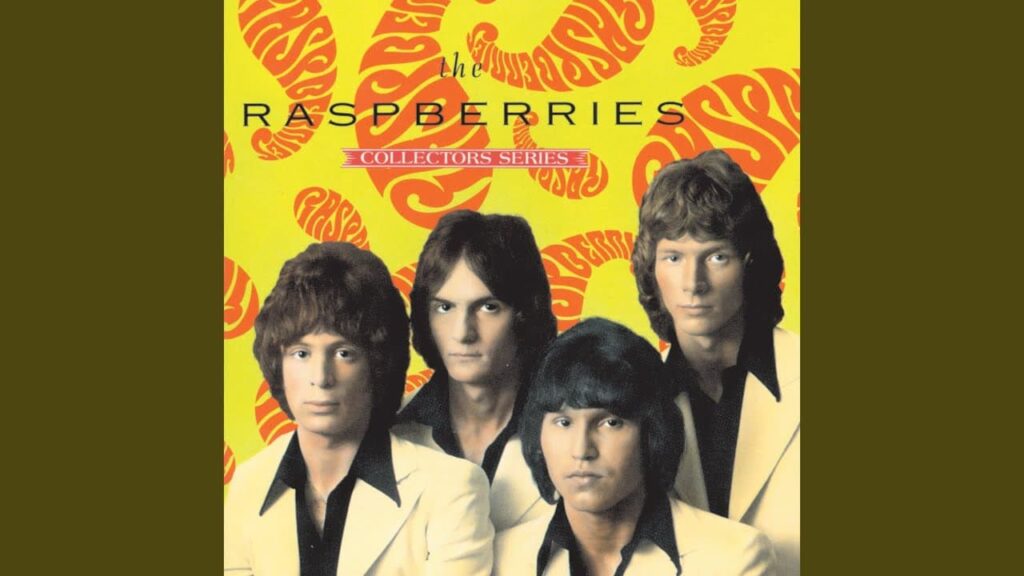
A Power Pop Explosion of Youthful Desire: When a Band Ignited a Firestorm of Controversy and Cult Status.
“Go All the Way,” a raw, unabashed anthem of youthful desire, a power pop explosion that dared to push the boundaries of radio-friendly rock, became a defining moment for a band that walked a tightrope between critical acclaim and commercial controversy. This 1972 single by The Raspberries reached number five on the Billboard Hot 100, but its impact far exceeded its chart position, igniting a firestorm of controversy due to its explicit lyrical content, and ultimately solidifying its place as a cult classic. It’s a song that grapples with the raw, unfiltered emotions of adolescence, the unbridled yearning for physical intimacy, and the rebellious spirit of a generation pushing against the constraints of societal norms. It’s a song that transforms a simple plea into a power pop anthem of youthful defiance.
Imagine a dimly lit club, the air thick with the raw energy of a band channeling the spirit of the British Invasion through a distinctly American lens. The Raspberries, their harmonies echoing the melodic brilliance of their idols, deliver a performance that’s both electrifying and undeniably provocative. Eric Carmen’s raw, yearning vocals, coupled with the band’s driving rhythm and soaring melodies, create a sonic landscape that’s both immediate and undeniably powerful. The song, featured on their self-titled debut album, “Raspberries,” wasn’t just a power pop hit; it was a cultural lightning rod, a testament to the raw energy and unbridled desire of a generation pushing against the boundaries of mainstream acceptance. The explicit lyrics, the driving beat, and the soaring harmonies created a sense of urgency, a feeling that this song was a raw, unfiltered expression of youthful passion.
The song’s genesis, within the context of The Raspberries’ career, marked a period of artistic ambition and commercial struggle. They were a band that dared to challenge the prevailing trends of the early 1970s, embracing the melodic brilliance of the British Invasion while infusing it with a raw, American energy. With “Go All the Way,” they pushed the boundaries of lyrical content, crafting a song that was both undeniably catchy and undeniably controversial. They weren’t simply playing a pop song; they were making a statement, challenging the conservative norms of radio programming and pushing the limits of artistic expression.
For those of us who remember the early 1970s, “Go All the Way” evokes a sense of raw, unbridled energy, a yearning for a time when rock and roll was synonymous with youthful rebellion and uninhibited desire. It was a time of cultural transition, a time when artists were not afraid to challenge the status quo, to explore the raw emotions of adolescence and to push against the constraints of societal norms. The Raspberries’ performance, with its driving rhythm and explicit lyrics, offered a moment of raw emotional release, a sense of shared defiance. It was a song that spoke to the deepest longings of the human heart, the desire for connection, for intimacy, and for a sense of belonging in a world that often felt stifling and constrained.
The song’s enduring appeal lies in its timeless message of youthful desire and the rebellious spirit of a generation pushing against the boundaries of acceptance. It’s a reminder that even in a world often defined by conformity and restraint, the raw emotions of adolescence can ignite a firestorm of controversy and ultimately solidify a song’s place as a cult classic. It’s a song that transcends generations, speaking to the universal human experience of grappling with desire and challenging the norms of society. And even today, decades later, “Go All the Way” retains its power to move and provoke, its driving rhythm and explicit lyrics offering a moment of raw emotional release, a sense of shared defiance. It’s a testament to the power of a rock song to capture the raw energy of youth, a reminder that sometimes, the most profound emotions are expressed through a raw and uninhibited celebration of desire. It’s a song that serves as a timeless anthem of youthful defiance, a reminder that the raw emotions of adolescence can ignite a spark that echoes through time.